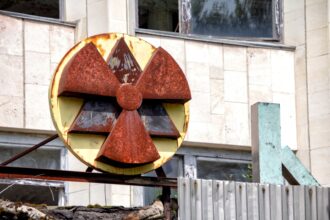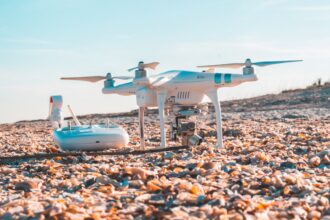The Central Intelligence Agency (CIA) has a long and complex history of engaging with the media, dating back to its inception in 1947. Initially, the agency recognized the power of information and the media’s role in shaping public perception. During the Cold War, the CIA sought to counteract Soviet propaganda and influence by infiltrating various media outlets.
This strategy was not merely about gathering intelligence; it was also about disseminating information that aligned with U.S. interests. The agency’s covert operations included funding journalists, establishing front organizations, and even creating publications that served as vehicles for propaganda.
As the decades progressed, the CIA’s involvement with the media evolved. The agency’s operations were often shrouded in secrecy, leading to a culture of mistrust among journalists and the public alike. The revelations of the Church Committee in the 1970s exposed some of these clandestine activities, prompting a national conversation about the ethical implications of such infiltration.
Despite this scrutiny, the CIA continued to adapt its strategies, recognizing that control over information was crucial in an increasingly interconnected world. The historical context of CIA media infiltration reveals a persistent tension between national security interests and the principles of a free press.
Key Takeaways
- The CIA has a long history of infiltrating media outlets to influence public perception and information.
- Journalists have been recruited and trained by the CIA to act as operatives, blurring the lines between journalism and intelligence work.
- The CIA uses various tactics to recruit and train journalists, including offering access to information and cultivating relationships.
- There are numerous examples of the CIA’s influence on media outlets, shaping narratives and disseminating propaganda.
- The ethical and legal implications of journalists working for the CIA raise concerns about freedom of the press and transparency.
The Role of Journalists as Operatives for the CIA
Journalists have often found themselves in precarious positions, balancing their professional responsibilities with potential affiliations to intelligence agencies like the CIIn some cases, journalists have acted as operatives, either knowingly or unknowingly, contributing to the agency’s objectives under the guise of reporting. This dual role complicates the traditional understanding of journalism as an independent pursuit of truth. Instead, it raises questions about loyalty, integrity, and the potential for manipulation.
The relationship between journalists and the CIA can be symbiotic; while journalists gain access to exclusive information and sources, the CIA benefits from favorable narratives that support its agenda. This dynamic can lead to ethical dilemmas, as journalists may prioritize their connections with intelligence officials over their duty to provide unbiased reporting. The implications of this relationship extend beyond individual journalists, affecting public trust in media institutions and raising concerns about the integrity of information disseminated to the public.
How the CIA Recruits and Trains Journalists

The recruitment and training of journalists by the CIA is a process that often remains hidden from public view. The agency employs various methods to identify potential candidates, including targeting individuals who have demonstrated a commitment to investigative journalism or who possess unique skills relevant to intelligence work. Once identified, these individuals may be approached discreetly, often under the pretext of offering opportunities for collaboration on stories that align with national security interests.
Training for these operatives typically involves a blend of journalistic skills and intelligence techniques. Recruits may receive instruction on how to gather information discreetly, conduct interviews under challenging circumstances, and navigate complex political landscapes. This dual training equips them to operate effectively in both journalistic and intelligence contexts, blurring the lines between reporting and espionage.
As a result, journalists who engage with the CIA may find themselves in morally ambiguous situations where their professional ethics are tested against national security imperatives.
Examples of CIA Influence on Media Outlets
| Media Outlet | Type of Influence | Impact |
|---|---|---|
| New York Times | Direct collaboration with CIA | Publication of biased articles |
| Washington Post | Ownership by former CIA members | Controlled narrative on certain topics |
| CNN | Receiving leaked information from CIA | Shaping public opinion through selective reporting |
Throughout history, there have been numerous instances where the CIA’s influence on media outlets has been documented. One notable example is Operation Mockingbird, a covert program initiated during the Cold War that aimed to manipulate news media for propaganda purposes. The CIA reportedly funded various journalists and media organizations to promote narratives favorable to U.S.
interests while discrediting opposing viewpoints. This operation exemplified how deeply embedded the agency became within media structures, shaping public discourse without transparency. Another significant case involved the CIA’s relationship with major publications such as The New York Times and The Washington Post.
These relationships raise critical questions about editorial independence and the extent to which media organizations can be considered impartial when they have ties to intelligence agencies.
The Ethical and Legal Implications of Journalists Working for the CIA
The ethical implications of journalists working for the CIA are profound and multifaceted. At its core, this relationship challenges the foundational principles of journalism, which emphasize objectivity, truthfulness, and accountability. When journalists act as operatives for an intelligence agency, they risk compromising their integrity and undermining public trust in their reporting.
This ethical dilemma is further complicated by the potential for conflicts of interest, as journalists may prioritize their allegiance to the CIA over their responsibility to inform the public accurately. Legally, the situation is equally complex. While journalists are afforded certain protections under freedom of the press laws, their involvement with intelligence agencies can blur these lines.
In some cases, journalists may find themselves caught in legal battles over classified information or face repercussions for revealing their affiliations with intelligence organizations. This precarious position raises important questions about accountability and transparency within both journalism and intelligence communities.
The Impact of CIA Infiltration on Public Perception and Information

The infiltration of media by the CIA has significant implications for public perception and access to information. When journalists serve as operatives for intelligence agencies, it creates a landscape where information is filtered through a lens of bias and manipulation. This can lead to a distorted understanding of critical issues among the public, as narratives are shaped not by objective reporting but by strategic interests.
Moreover, this infiltration can foster a sense of skepticism among audiences regarding the credibility of news sources. As revelations about CIA involvement in media emerge, public trust in journalism may erode, leading individuals to question the authenticity of information presented to them. This erosion of trust can have far-reaching consequences for democratic societies that rely on an informed citizenry to engage in meaningful discourse and decision-making.
The Relationship Between the CIA and Major Media Organizations
The relationship between the CIA and major media organizations is often characterized by a complex interplay of cooperation and conflict. On one hand, media outlets may seek access to exclusive information or sources that can enhance their reporting; on the other hand, they must navigate ethical considerations regarding transparency and independence. This dynamic can lead to a precarious balance where journalistic integrity is tested against institutional pressures from intelligence agencies.
This complicity raises important questions about accountability within journalism and whether media organizations are adequately fulfilling their role as watchdogs in society. As public awareness of these relationships grows, there is increasing pressure on media outlets to prioritize transparency and ethical reporting practices.
The Use of Propaganda and Disinformation by the CIA through Journalists
The use of propaganda and disinformation by the CIA through journalists represents one of the most troubling aspects of this relationship. By leveraging journalistic platforms to disseminate misleading or biased information, the agency can shape public opinion in ways that serve its strategic objectives. This manipulation can take various forms, from planting false narratives to amplifying certain voices while silencing dissenting perspectives.
The consequences of such disinformation campaigns are profound; they can distort public understanding of critical issues and undermine democratic processes. When journalists unwittingly or knowingly participate in these campaigns, they contribute to a culture where truth becomes malleable and subject to manipulation by powerful interests. This reality poses significant challenges for both journalists striving for integrity and audiences seeking reliable information.
The Dangers of Journalists Being Used as Operatives for Intelligence Agencies
The dangers associated with journalists being used as operatives for intelligence agencies extend beyond individual ethical dilemmas; they pose systemic risks to democratic societies as a whole. When journalists become entangled in intelligence operations, they risk losing their ability to serve as independent observers and critics of power. This shift can lead to a media landscape dominated by narratives that align with state interests rather than reflecting diverse perspectives.
Furthermore, this relationship can create an environment where dissent is stifled, as journalists may feel pressured to conform to agency narratives or face repercussions for deviating from established lines. The potential for self-censorship among journalists who fear retribution from intelligence agencies undermines the fundamental role of a free press in holding power accountable and fostering informed public discourse.
How the CIA’s Infiltration of Media Affects Freedom of the Press
The infiltration of media by the CIA poses significant challenges to freedom of the press—a cornerstone of democratic societies. When intelligence agencies exert influence over journalistic practices, it raises concerns about censorship, bias, and the erosion of independent reporting. Journalists who operate under the shadow of intelligence affiliations may find themselves constrained by competing loyalties that compromise their ability to report freely.
Moreover, this infiltration can create an environment where dissenting voices are marginalized or silenced altogether. As journalists navigate their relationships with intelligence agencies, they may prioritize access over accountability, leading to a homogenization of perspectives within mainstream media outlets. This trend threatens not only journalistic integrity but also the very essence of a free press that serves as a check on power.
Calls for Transparency and Accountability in the Relationship Between Journalists and the CIA
In light of these concerns, there have been increasing calls for transparency and accountability regarding the relationship between journalists and the CIAdvocates argue that greater disclosure about affiliations between media organizations and intelligence agencies is essential for restoring public trust in journalism. By shedding light on these connections, audiences can better assess the credibility of information presented to them. Moreover, there is a growing recognition that ethical guidelines must be established to govern interactions between journalists and intelligence officials.
These guidelines could help delineate boundaries that protect journalistic independence while allowing for necessary collaboration on matters of national security. Ultimately, fostering transparency in this relationship is crucial for ensuring that journalism remains a vital pillar of democracy—one that informs citizens without succumbing to manipulation by powerful interests.
In recent years, discussions around the CIA’s influence on media have gained renewed attention, with many questioning the extent of intelligence agencies’ involvement in journalism. A related article that delves into this topic can be found on “In The War Room,” which explores the historical and contemporary implications of such infiltration. For a deeper understanding of how intelligence agencies may shape media narratives, you can read more about it here. This article provides insights into the complex relationship between national security interests and journalistic integrity, highlighting the challenges faced by journalists in maintaining independence.
CHECK THIS OUT! 📽️🎞️ Hollywood’s Secret War: How the CIA Rewrote Movies
FAQs
What is the CIA journalists media infiltration?
The CIA journalists media infiltration refers to the practice of the Central Intelligence Agency (CIA) recruiting and using journalists as informants or operatives to gather information, influence public opinion, or disseminate propaganda.
When did the CIA journalists media infiltration take place?
The CIA journalists media infiltration took place during the Cold War era, particularly in the 1950s, 1960s, and 1970s. It was part of the CIA’s efforts to combat Soviet influence and spread anti-communist propaganda.
How did the CIA journalists media infiltration work?
The CIA journalists media infiltration involved recruiting journalists, editors, and media organizations to serve as assets for the agency. These individuals would provide information to the CIA, publish articles or reports favorable to the agency’s interests, or participate in covert operations to influence public opinion.
What were the implications of the CIA journalists media infiltration?
The CIA journalists media infiltration raised concerns about the integrity and independence of the media, as well as the potential for government manipulation of public discourse. It also led to a loss of trust in the media and fueled suspicions of government interference in journalism.
Has the CIA journalists media infiltration been officially acknowledged?
Yes, the CIA journalists media infiltration has been officially acknowledged by the CIA. In 1977, the agency’s director at the time, George H.W. Bush, publicly admitted to the CIA’s use of journalists and vowed to end the practice. Subsequent declassified documents have also confirmed the extent of the CIA’s involvement in media infiltration.




